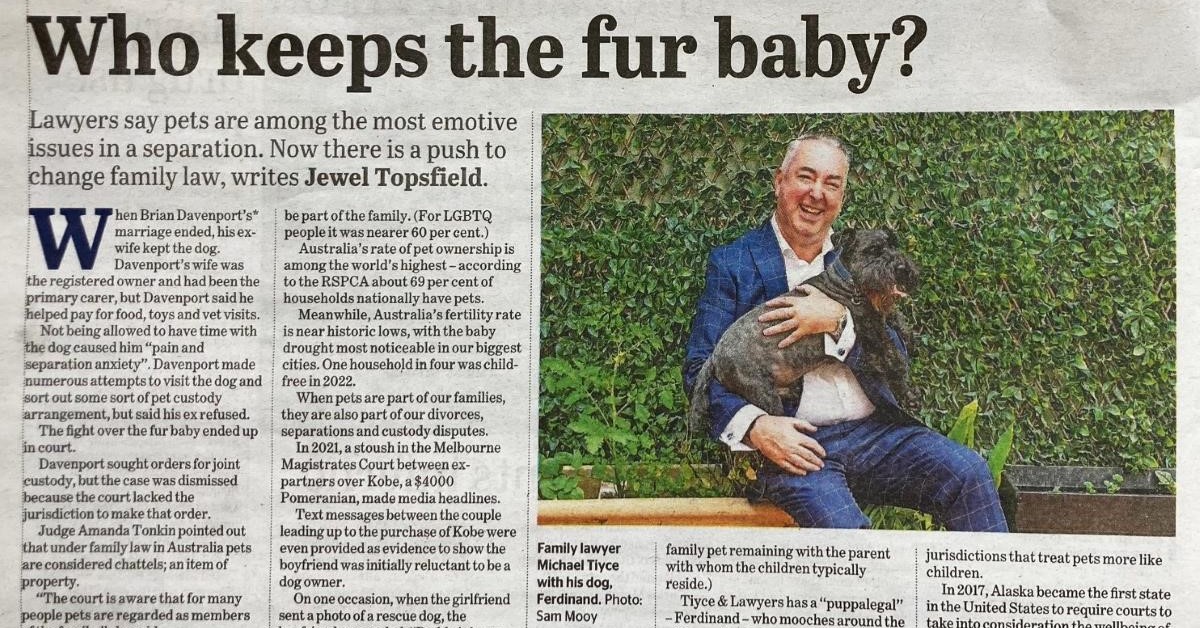The issue of who gets ‘custody’ of the fur babies has been getting a lot of attention lately. We wrote about it a couple of weeks ago here: https://tiyce.com/blog/fur-babies-are-still-babies/
Now our Principal Michael Tiyce has appeared in the Sun Herald in a feature article about the issue. At present in Australia, family law treats pets as property, which as Michael points out in the article, is out of step with how we view our pets. Most of us consider them to be family.
Interested in learning more? Head over to the SMH site to read on > or read an excerpt below:
Changing the law
Family law specialist Michael Tiyce believes Australian laws should be amended to reflect the profound emotional bonds between animals and their owners.
Family lawyer Michael Tiyce with his dog Ferdinand. CREDIT: SAM MOOY
Currently, courts typically determine ownership by looking at financial contributions – who bought the pet, for example, or who paid the registration and took care of the vet bills.
However, this pets-as-property model does not take into consideration what is best for the pet and owner, such as who has the bigger yard or who spends the most time looking after the dog. There is also no case law that provides for a shared-care arrangement for items of property – you don’t move the fridge between households or visit the TV.
“The sorts of things that we look at in terms of making arrangements for children aren’t what we look at necessarily when it’s for animals,” Tiyce says.
(The court may, however, consider the best interests of a child under section 60CC of the Family Law Act. This could result in the family pet remaining with the parent with whom the children typically reside.)
Tiyce & Lawyers has a “puppalegal” – Ferdinand – who mooches around the office and has his own Facebook page.
“I would be fanatical about the arrangements for my dog if my partner and I separated,” Tiyce says. “I’d probably give him the house and just keep the dog rather than have the fight.”
Tiyce believes pet custody laws that move beyond traditional property principles would be a large step forward. He points to other jurisdictions that treat pets more like children. In 2017, Alaska became the first US state to require courts to take into consideration the wellbeing of the animal and to explicitly empower judges to assign joint custody of pets. The Alaska bill was the brainchild of the late Democrat Max Gruenberg, a former family lawyer who had once handled a divorce case that resulted in joint custody of a sled-dog team. Similar laws now exist in California and Illinois.
In 2022, Spain adopted laws that require courts to consider the pet’s welfare during a settlement, with their legal status changed from objects to sentient beings.
“Factors such as the best interests of the pet have been encoded into legislation within other countries and would work well alongside primary carer designation, visitation rights procedure, and financial support for the ongoing care of the pet,” Tiyce says.







